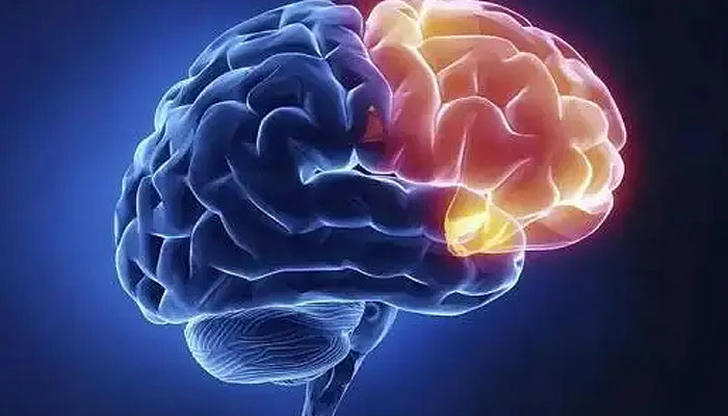Eight Health Benefits of DHA

As we all know that the brain and retina are with the most abundant omega-3 fatty acid. The brain is a fatty organ and up to 10% and 20% of its total fats are DHA. Of the polyunsaturated fatty acids in the brain, 90% are DHA, which is especially concentrated in the brain's gray matter. In addition, there are 60% of the PUFAs in the retina. Below we’ll cover the benefits of DHA.
Supports Fetal/Infant Development

Why is DHA good for babies? Because it benefits brain development. Usually pregnant people may be suggested to take prenatal supplements containing 200mg to 300mg, due to infants acquiring it in utero during pregnancy or from breast milk. If the omega-3 essential fatty acids during fetal are not enough, it will cause permanently damage on baby’s neonatal development, neural function and integrity.
If infants with higher levels of DHA for a long-term, it will fasten development of behavioral functions. Generally speaking, there is a positive link between DHA supplementation during pregnancy and neurological development in infants.
Thus, the more healthy and consumed dietary docosahexaenoic acid or DHA supplements a mother has, the better a breastfed baby will get enough DHA from the mother’s breast milk. If possible, you can supplement adequate DHA for your baby.
Decrease the risk of Autism and ADHD

Autism spectrum disorders are a series of related developmental disorders. Its symptoms often manifest on some aspects, such as language skills, behavior, socializing, and the ability to learn. ADHD is a common condition that can affect your concentration, action or how you stay still.
Some scientific researches show that if infants are born with higher DHA levels, they will get a better childhood neurodevelopmental health. While the lower DHA levels were associated with higher rates of autism spectrum disorders and attention-deficit.
Recent studies have found that ADHD patients’ blood contains lower levels of omega-3s compared to those without ADHD, and it appears omega-3 supplements may help prevent ADHD.
Supports brain development

Recently more and more researches show a link between mothers' DHA status and kids' performance on language and short-term memory tasks.
The American Journal of Clinical Nutrition shows that those children of mothers who supplement DHA during pregnancy demonstrate better problem-solving abilities than those mothers did not supplement.
What’s more, it believes that DHA supplements may facilitate synaptic plasticity, which is an ability of synapses in the brain. This ability can greatly affect learning and memory. So if you increase the fish intake or DHA supplements in your diet, your memory and brain development will be improved.
Supports vision and eye health

DHA plays a significant role in the development of proper visual function in infants. A study published in 2010 found babies of mothers who supplemented with DHA had better early visual acuity than those whose mothers did not supplement. In addition, it is suggested that an adequate supply of docosahexaenoic acid is very essential for infants, no matter what the sources are, from breast milk or DHA-fortified formula.
The retina enriches a high concentration of DHA, which improve visual function, fluidity of photoreceptor membranes and retinal integrity. So enough docosahexaenoic acid is closely related to a better visual function and more rapid visual development.
Improves Pregnancy Outcomes

Compared with DHA supplemented pregnancy people, those who did not supplement with DHA during the later weeks of pregnancy will have a higher rates of infants born at 34 weeks or earlier. According to some medical clinic researches, some pregnancy people will be given some dose of DHA during the last half of pregnancy, which makes their babies with greater birth weights, lengths, and head circumference.
May support brain health

Some studies on patients with depression show if they take some omega-3 polyunsaturated fatty acids and DHA supplementation, it could show an overall beneficial effect. All in all, different countries suggest that people consume more fish, then they will tend to suffer from less depression. There is really a link between the prevalence of major depression and the fish consumption.
May reduce inflammation

Studies data based on the lab, animal, and human, suggest that DHA could produce a body response to inflammation. And it could be a "key tool" in preventing metabolic syndrome, which is associated with inflammation. It is known to all, metabolic syndrome can lead to diabetes, heart disease, and stroke.
Therefore, high DHA levels could help decrease these disease. The American Heart Association recommends consuming fish, particularly fatty fish, at least two times per week to support overall heart health.
May treat rheumatoid arthritis symptoms

Rheumatoid arthritis(RA) is a long-term autoimmune disorder that primarily affects joints and leads to the destruction of bone and cartilage. It typically results in warm, swollen, and painful joints. Most commonly, pain and stiffness often worsen following rest.
Researches have found that DHA could reduce inflammation in the body, so it may help decrease damage, swelling and pain in the joints of people with rheumatoid arthritis. Compared to many other countries, the Japanese eat a larger quantity of DHA enriched foods, leading to a lower incidence of rheumatoid arthritis. Because of consuming two or more fish meals per week, those people have 43% lower risk of developing rheumatoid arthritis as compared to those who consumed less than one serving of fish per week.

